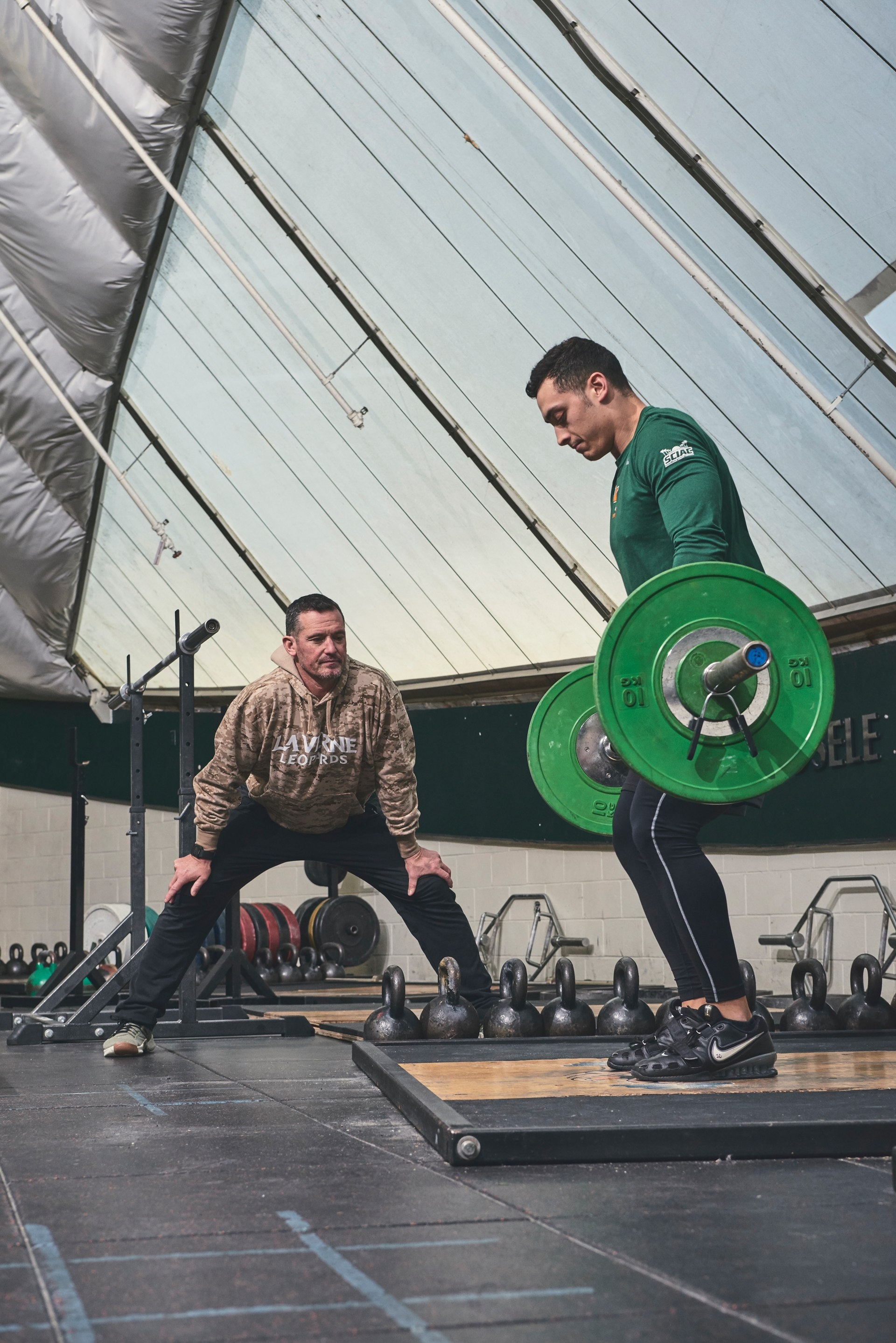Collegiate strength coaches are known for being gruff, my-way-or-the-highway authoritarians. Matt Durant fits the stereotype.
The University of La Verne strength and conditioning coach patrols the Moseley Strength and Fitness Center and Ortmayer Stadium, scowling and barking at hard-working student athletes, pushing them to be stronger and to go faster.
But there’s more to his method than muscle-building menace. Durant, who was named National Sports Performance Association 2017 Coach of the Year, cares deeply about his students. Those who follow his lead are conditioned for success beyond athletics.
“They’re not always going to have people around telling them how great they are,” said Durant, a 1999 graduate of the University of La Verne. “I want them to be able to handle different circumstances. To go through life, see a situation, walk up to it, and deal with it.”
The “Durant experience” is a shock for many first-year students.
“I had never touched a weight before, so it was a big, loud wake-up call for me,” recalled Leslie Flores-Cloud ’07, former La Verne volleyball player and now Eastern Washington University head volleyball coach. “He held us accountable for anything we did.”
Durant’s punishing regimens and pugnacious coaching style have not changed over his 19 years at the helm. He expects his athletes to perform without excuses because those are the expectations they will face after college.
“There’s a high level of accountability. It’s not just show-up-and-do-it. It’s do-it, be-good-at-it, work-really-hard-at-it, and don’t-have-an-attitude-about-it,” Durant said.
He coaches people to achieve goals they hadn’t dared set themselves. That can translate to lifting a heavier weight or increasing their endurance. But for most student-athletes, it means something more.
“He may seem intimidating, but he wants the best for us,” said former La Verne men’s basketball player Adrian Ferrera ’06, now director of counseling and sports psychology at Auburn University. “He wants us to be familiar with adverse situations so we know how to push through them.”
For Flores-Cloud, being held accountable by Durant gave her the confidence to dream big.
“He pushed us to a point we had no idea we could reach,” she said, “and made sure we didn’t settle for less. That mentality has aided me professionally. He helped me believe I was bigger than my previous aspirations. I wouldn’t be where I am today without him.”
